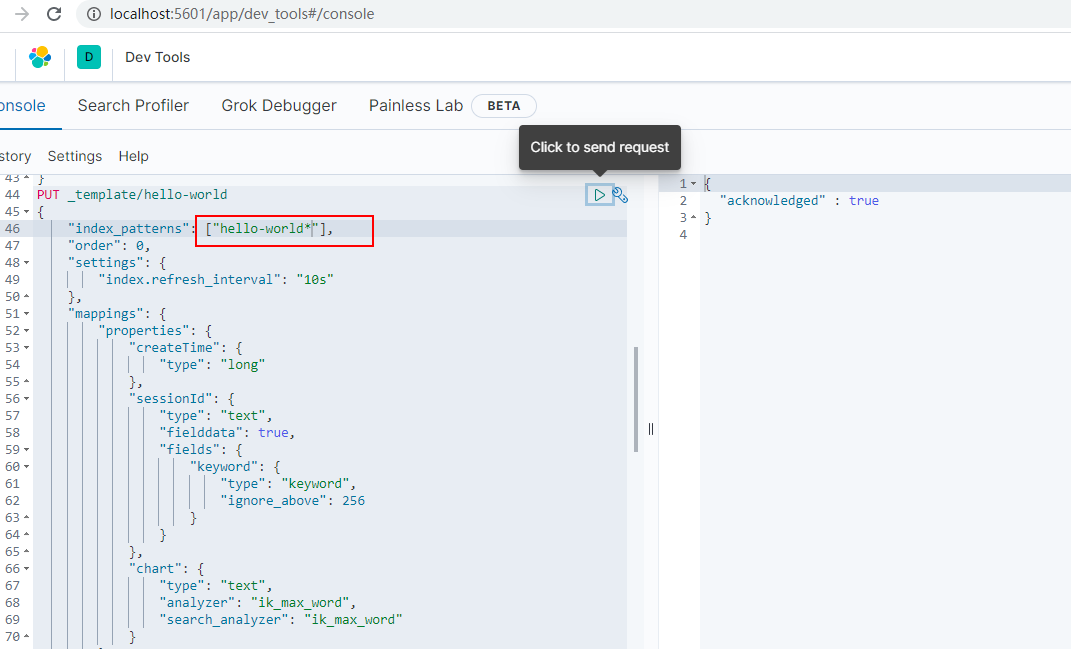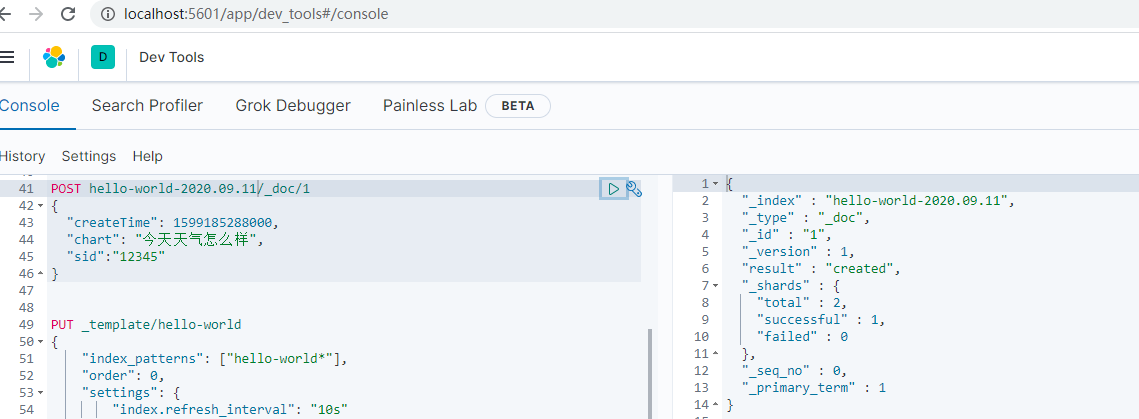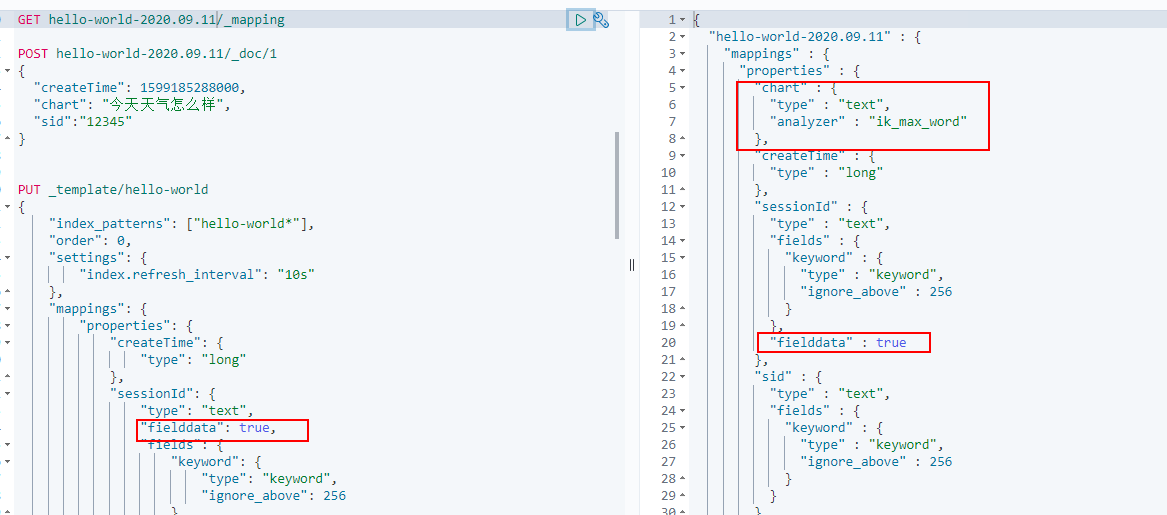采坑了。首先吐槽一下,下载elasticsearch的最新版本7.9.0了,配置索引模板跟原来6.X.X、6.X.X之前的都有点差别。新版的api中除了_template,又有了_index_template和_component_template,很容易混淆,让人不知所措。好了回归正题,我们这里使用的特指7.9.0的_template这个api。
事情是这样的,我在logstash配置了一个output指向elasticsearch的template:
output { elasticsearch{ hosts => "localhost:9200" index => "hello-world-%{+YYYY.MM.dd}" manage_template => true template_name => "hello-world" template_overwrite => true template => "D:elklogstash-7.9.0confighello-world.json" } }
hello-world.json内容:
{ "index_patterns": ["hello-world-%{+YYYY.MM.dd}"], "order": 0, "settings": { "index.refresh_interval": "10s" }, "mappings": { "properties": { "createTime": { "type": "long" }, "sessionId": { "type": "text", "fielddata": true, "fields": { "keyword": { "type": "keyword", "ignore_above": 256 } } }, "chart": { "type": "text", "analyzer": "ik_max_word", "search_analyzer": "ik_max_word" } } } }
结果是创建的hello-world-2020.09.09索引的mapping并非模板中所指定的,而是按动态模板来的。明眼人也许一样就发现了问题:我把logstash的索引样式hello-world-%{+YYYY.MM.dd}直接复制给了模板中的index_patterns赋值了。这会导致什么问题呢?让我们来kibana中试验一下:
1、先创建上面的索引模板,执行
PUT _template/hello-world { "index_patterns": ["hello-world-%{+YYYY.MM.dd}"], "order": 0, "settings": { "index.refresh_interval": "10s" }, "mappings": { "properties": { "createTime": { "type": "long" }, "sessionId": { "type": "text", "fielddata": true, "fields": { "keyword": { "type": "keyword", "ignore_above": 256 } } }, "chart": { "type": "text", "analyzer": "ik_max_word", "search_analyzer": "ik_max_word" } } } }
2、创建索引并插入数据(注意新模板对老索引不生效,可以把索引删掉重建):
POST hello-world-2020.09.10/_doc/1 { "createTime": 1599185288000, "chart": "今天天气怎么样", "sid":"12345" }
3、看下该索引的mapping:
GET hello-world-2020.09.10/_mapping
结果是:
{ "hello-world-2020.09.10" : { "mappings" : { "properties" : { "chart" : { "type" : "text", "fields" : { "keyword" : { "type" : "keyword", "ignore_above" : 256 } } }, "createTime" : { "type" : "long" }, "sid" : { "type" : "text", "fields" : { "keyword" : { "type" : "keyword", "ignore_above" : 256 } } } } } } }
嗯,结果是hello-world-2020.09.10索引的映射都是elasticsearch自动识别创建出来的,或者说它匹配不到我们的hello-world模板而使用了默认的mapping。模板的作用就是创建索引时能指定映射,现在模板不生效了。我尝试了各种设置,发现不使用模板,直接给hello-world-2020.09.10索引指定mapping是没有问题的,所以问题不在映射配置上,而在于模板本身。然后就被误导了,改了order的优先级顺序,尝试了开篇提到的各种es版本的配置差别和其他api。最后把各种坑都采完了,才恍然发现我的索引模式可能没匹配上。问题就出现在模板的第一行,我把index_patterns改成hello-word*,创建索引时就使用了模板了。
1、再次put模板覆盖一下:

2、新建一个新索引:

3、看它的mapping:

我们看到新索引hello-world-2020.09.11被模板识别到了。所以,日志索引就别在模板中的index_patterns乱添样式了,直接用日志前缀加*通配就好了。